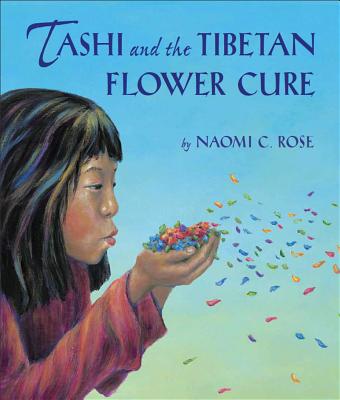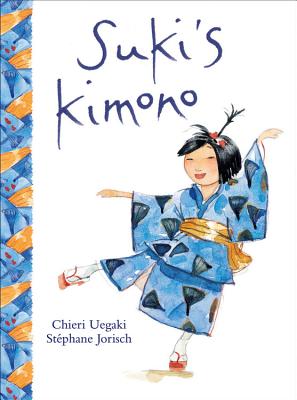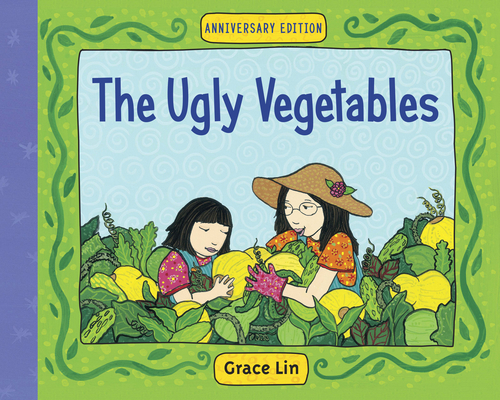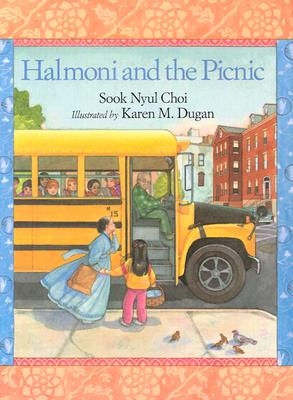To continue celebrating Asian-Pacific American Heritage Month, here are five books that specifically celebrate Asian American heritage. Sadly, we haven't found any picture books featuring Pacific American characters, and only a few with Pacific Islander characters (they are all folktales). We'll be featuring those in a future post, but if you know of any picture books that feature Pacific American protagonists, we would really love to hear about them in the comments.
As with all our recommendations, these books are great for everyone. Reading about other cultures as well as our own enriches us all and helps create mutual understanding!
My Dadima Wears a Sari
written by Kashmira Sheth, illustrated by Yoshiko Jaeggi

A beautifully illustrated story of a little girl's admiration of her dadima (grandmother) and the lovely saris she wears. When the granddaughter asks her grandmother if she ever wants to wear something else, the grandmother says no and explains her love for saris. She chronicles how useful saris can be, how each one is different, and shares the special memories her saris hold. The book ends with the little girl and her sister being lovingly dressed in saris by their grandmother. Includes an author's note and "how to wrap a sari".
Tashi and the Tibetan Flower Cure
written and illustrated by Naomi C. Rose

Tashi is concerned about her grandfather who is sick. So when she remembers a story he told her of the people in his Tibetan village who used flowers to get well, she thinks she's found a solution. At first, her grandfather doesn't think the cure will work in the United States, so far from the magic of his native land, but Tashi is determined. Using acrylic paintings, Rose illustrates the healing power of a caring community. Includes short notes on Tibet, Tibetan Americans, Tibetan medicine, and Tibetan words.
Suki's Kimono
written by Chieri Uegaki, illustrated by Stephanie Jorisch

On the first day of school, Suki wears the kimono and wooden shoes given to her by her obachan (grandmother), despite her sisters' warnings that people will laugh at her. Even when her sisters run away from her, and some kids giggle at her, Suki is still proud of her lovely kimono. When her new teacher asks the students to talk about what they did over the summer, Suki proudly reenacts a dance from a street festival she attended with her obachan. At first she isn't sure her class appreciates her performance, but Suki's love of her own culture helps those around her to appreciate it, too. This is a great story about embracing and having pride in your heritage regardless of what other people think. Jorisch's illustrations are lovely and Uegaki manages to make what could be a didactic message very palatable. Includes a short glossary of Japanese words.
The Ugly Vegetables
written and illustrated by Grace Lin

It's spring and a little and her mother are planting their garden. As it turns out, so are all their neighbors, but the neighbors are all planting flower gardens while the little girl and her mother and planting Chinese vegetables. As they plant the seeds, the shoots begin to grow, and finally the "ugly" vegetables appear, the little girl is disappointed that their garden isn't like everyone else's. Her mother assures her that this is because it is better. When her mother makes a delicious special soup from the garden vegetables, the little girl--and all the neighbors--are all big fans of the ugly vegetables. Colorfully illustrated in Lin's signature style, in addition to being a celebration of culture, this is also a good book about how appearances can be deceiving.
Halmoni and the Picnic
written by Sook Nyul Choi, illustrated by Karen M. Dugan

Yunmi's Halmoni (grandmother) walks her to school everyday. Though Halmoni always gives Yunmi's friends bags of fruit each morning, she is shy to speak English to them. So when Yunmi's teacher tells the class that they will be going on a picnic in Central Park and need adult chaperones, Yunmi's friend asks if Halmoni can go. While Yunmi is happy that her friends like Halmoni, she's nervous about how the other children will react to Halmoni's Korean dress, shoes, and food. But her fears turn out to be unfounded and the picnic turns out to be wonderful outing for Halmoni who has been lonely in her new life in America.
As with all our recommendations, these books are great for everyone. Reading about other cultures as well as our own enriches us all and helps create mutual understanding!
My Dadima Wears a Sari
written by Kashmira Sheth, illustrated by Yoshiko Jaeggi

A beautifully illustrated story of a little girl's admiration of her dadima (grandmother) and the lovely saris she wears. When the granddaughter asks her grandmother if she ever wants to wear something else, the grandmother says no and explains her love for saris. She chronicles how useful saris can be, how each one is different, and shares the special memories her saris hold. The book ends with the little girl and her sister being lovingly dressed in saris by their grandmother. Includes an author's note and "how to wrap a sari".
Tashi and the Tibetan Flower Cure
written and illustrated by Naomi C. Rose

Tashi is concerned about her grandfather who is sick. So when she remembers a story he told her of the people in his Tibetan village who used flowers to get well, she thinks she's found a solution. At first, her grandfather doesn't think the cure will work in the United States, so far from the magic of his native land, but Tashi is determined. Using acrylic paintings, Rose illustrates the healing power of a caring community. Includes short notes on Tibet, Tibetan Americans, Tibetan medicine, and Tibetan words.
Suki's Kimono
written by Chieri Uegaki, illustrated by Stephanie Jorisch

On the first day of school, Suki wears the kimono and wooden shoes given to her by her obachan (grandmother), despite her sisters' warnings that people will laugh at her. Even when her sisters run away from her, and some kids giggle at her, Suki is still proud of her lovely kimono. When her new teacher asks the students to talk about what they did over the summer, Suki proudly reenacts a dance from a street festival she attended with her obachan. At first she isn't sure her class appreciates her performance, but Suki's love of her own culture helps those around her to appreciate it, too. This is a great story about embracing and having pride in your heritage regardless of what other people think. Jorisch's illustrations are lovely and Uegaki manages to make what could be a didactic message very palatable. Includes a short glossary of Japanese words.
The Ugly Vegetables
written and illustrated by Grace Lin

It's spring and a little and her mother are planting their garden. As it turns out, so are all their neighbors, but the neighbors are all planting flower gardens while the little girl and her mother and planting Chinese vegetables. As they plant the seeds, the shoots begin to grow, and finally the "ugly" vegetables appear, the little girl is disappointed that their garden isn't like everyone else's. Her mother assures her that this is because it is better. When her mother makes a delicious special soup from the garden vegetables, the little girl--and all the neighbors--are all big fans of the ugly vegetables. Colorfully illustrated in Lin's signature style, in addition to being a celebration of culture, this is also a good book about how appearances can be deceiving.
Halmoni and the Picnic
written by Sook Nyul Choi, illustrated by Karen M. Dugan

Yunmi's Halmoni (grandmother) walks her to school everyday. Though Halmoni always gives Yunmi's friends bags of fruit each morning, she is shy to speak English to them. So when Yunmi's teacher tells the class that they will be going on a picnic in Central Park and need adult chaperones, Yunmi's friend asks if Halmoni can go. While Yunmi is happy that her friends like Halmoni, she's nervous about how the other children will react to Halmoni's Korean dress, shoes, and food. But her fears turn out to be unfounded and the picnic turns out to be wonderful outing for Halmoni who has been lonely in her new life in America.
I haven't read any of these! Thanks for the recommendations!
ReplyDeleteYou're very welcome and we hope you enjoy them!
Delete